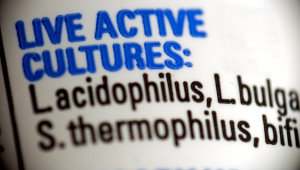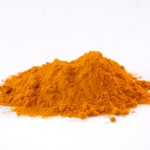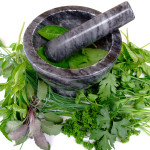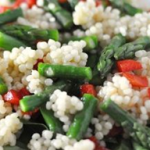 What are probiotics good for? Are they good for gut inflammation? How about whole body inflammation? Probiotics are good microorganisms that you ingest in the form of food or supplements; they are also known as “friendly bacteria”.
What are probiotics good for? Are they good for gut inflammation? How about whole body inflammation? Probiotics are good microorganisms that you ingest in the form of food or supplements; they are also known as “friendly bacteria”.
Our bodies naturally produce “normal flora” which is good bacteria that protects you from yeast and fungal infections. Sometimes medications such as antibiotics, certain diets or environmental issues get rid the good bacteria in your body along with the bad bacteria, making you susceptible to fungal or yeast infections.
Certain diseases can also cause an imbalance of normal flora in your body. Ingesting probiotics either through food sources or supplements helps to keep a consistent amount of good bacteria in your body. Probiotics in Greek means “for life” or “pro-life.”
What Do Probiotics Do For Your Body? Why are Probiotics Good for You?
- They support a healthy immune system.
- Help to improves digestion, including “leaky gut” problems associated with autoimmune and food allergy problems
- Helps to keep a balance between good and bad bacteria in your body.
- Relieves diarrhea and constipation by regulating your system.
- Studies show it helps to reduce bladder cancer recurrence.
- Helps to balance your mind by relieving symptoms of anxiety and depression.
What are the best probiotics?
- Lactobacillus
- Naturally found in the digestive, urinary and genital system.
- Found in yogurt, supplements and fermented foods.
- Used for treating yeast and fungal infections.
- It is also beneficial for urinary tract infections.
- Diarrhea related to antibiotics.
- Treats diarrhea related to C.difficile (a serious bacterial infection)
- Helps people who suffer from lactose intolerance.
- Helps to prevent respiratory infection.
- Wards off fever blisters and canker sores.
- Streptococcus thermophiles
- Necessary for the production of the enzyme lactase in the body.
- Helps with symptoms of lactose intolerance.
- Lactobacillus acidophilus
- Helps with yeast and fungal infections.
- Helps to clear acne.
- Helps with urinary tract infections.
- Prevent and treat vaginal infections
- Bifidobacteria
- 90% healthy bacteria found in the colon
- Supplements help symptoms from irritable bowel syndrome such as abdominal pain and bloating.
- Helps to normalize glucose levels.
- Lactobacillus casei
- Helps with anxiety and depression
What is a good probiotic?
- Yogurt is a good probiotic. Live cultured yogurt made with goat’s milk that has added lactobacillus and acidophilus. Make sure to buy yogurt that doesn’t contain sugar since sugar feeds bad bacteria.
- Kefir is a fermented dairy product made with goat’s milk and fermented kifir grains. This food is high in lactobacilli and bifidus bacteria.
- Kombucha Tea is a fermented tea loaded with probiotics. Used for centuries in the east
What is the Best Probiotic?
Of all of the brands available, you will probably find that VSL #3 is the best probiotic for people with chronic inflammation. It has shown promise in treating people with Crohn’s disease, ulcerative colitis and other inflammatory bowel diseases. The amounts of bacteria are higher than in other products.
That said, you can find an excellent probiotic in the Nutri-West Probiotic Supplement
- Total Probiotics.
- Helps to balance normal flora to support a healthy immune system while decreasing harmful bacteria.
- Maintains normal flora when taking antibiotic.
- Free of gluten, corn and soy; and other allergy prone products.
Reviews
Average ratings of 4.6 out of a five-star review on Amazon:
- Customer reported taking product for 2 years and has less bloating and gas; and stays regular.
- A customer living in a foreign country reports that he takes this product and it helps his stomach out.
- Customer comments that she had constipation issues for years and has been taking this product for two years now and does not have any more problems with constipation.
- Customer reported that product enhances her mind.
- A customer with celiac disease reports that it works well for her.
- A customer notices a difference when she doesn’t take it; her abdomen feels better when she takes it.
The following list contains non-dairy probiotics, just make sure the containers state live and active cultures:
- Rice, coconut and soy yogurt
- Miso
- Brewer’s yeast
- Sauerkraut
- Micro algae
Where can I buy probiotics?
You can buy probiotics can be purchased at a health food store or a whole foods market. Your local grocery store may have a health food section where probiotics can be purchased. Probiotics can also be bought online at Amazon.com and other ecommerce sites.
The following are a list of the best probiotic brands:
- Renew-Life
- Nutri-West
- Garden of Life Raw Probiotics
- Florastor
- Culturelle
- Yakult
- Jarrow
- Dr. Mercola’s Complete Probiotics
- Bio K Probiotics
- Udo’s Choice Probiotics
Side effects are rare but it’s best to consult with your doctor before taking probiotics. If you have a special GI problem, you may want to see a functional medicine doctor who is an expert in which probiotics work best for complicated health issues.
As mentioned above, you can buy probiotics useful for chronic inflammatory diseases at local health food stores. Some of the brands advertised on TV may not have enough good bacteria in them to make it worth your while. It is also important to realize that probiotics are living bacteria – they need to be refrigerated to stay helpful for you.
So, if a store does not store their probiotic products in a refrigerator case, they may not do much to help reduce inflammation in the body. You can buy probiotics online. Many companies will ship them with special packaging to keep them cool until they arrive. Other companies have tested their products and can get them to you by mail or shipping services without chilling them during transit – but then you are strongly advised to get them into your refrigerator once they get to you.
Finally, you can certainly get some probiotics from yogurt (avoid the sweetened ones that negate the value of the yogurt and the probiotic cultures). However, if you already have an inflammatory disease, you probably need a lot more of the good bacteria than you can get from eating yogurt, even daily. In addition, many people with chronic inflammation also have multiple food intolerances, which will take dairy products like yogurt out of the picture. Bottom line – take a close look at your natural probiotic supplement options.






Leave a Reply
You must be logged in to post a comment.